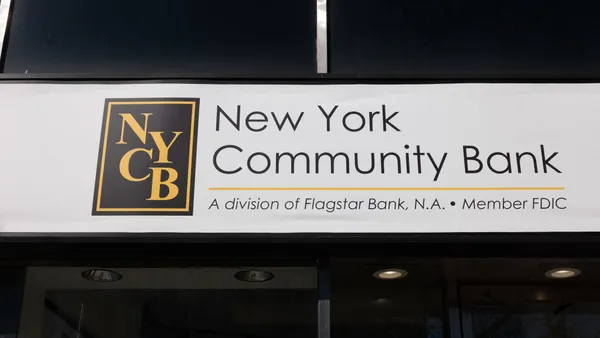Dive Brief:
-
The Office of the Comptroller of the Currency (OCC) will reconsider recent updates to the Community Reinvestment Act (CRA) that were made under the Trump administration, the regulator announced Tuesday.
-
The regulator published a final rule last year, overhauling the agency's regulations under the 1977 fair lending rule, a controversial move that was met with pushback from community groups and Democratic lawmakers.
-
"The OCC's actions will provide for an orderly reconsideration of the June 2020 rule and provide banks with more flexibility to deploy resources in response to the COVID-19 pandemic," the regulator said in a statement. "These actions also provide the OCC with the opportunity to consider additional stakeholder input, to evaluate issues and questions that have been raised, to reassess the necessary data, and to take additional regulatory action, as appropriate."
Dive Insight:
While the reconsideration of the CRA is ongoing, the OCC said it will "not object" to banks suspending efforts to comply with the rule changes, the earliest of which would take effect in January 2023.
The OCC said it also does not plan to finalize a rule it proposed in December that requested comment on an approach to determine the CRA evaluation measure benchmarks, retail lending distribution test thresholds and community development minimums.
The OCC's decision last year to move forward with its revamp of the CRA without the backing of its fellow regulators, the Federal Deposit Insurance Corp. (FDIC) and the Federal Reserve, drew fire from trade groups and industry stakeholders who called for a unified revision of the anti-redlining rule.
In prepared testimony submitted ahead of the House Financial Services Committee hearing Wednesday, Acting Comptroller Michael Hsu said the OCC is open to working on an interagency proposal regarding the rule.
"All options are under consideration, including rescinding or substantially revising the current rule and working with the Federal Reserve and FDIC on a joint proposal," he wrote. "Without prejudice to the outcome of the review, I am committed to following normal procedures and seeking public comment on any changes. The CRA is too important to do otherwise — all voices need to be heard and considered."
The American Bankers Association (ABA) welcomed the OCC's announcement Tuesday, calling the decision an opportunity for the regulatory agencies to pursue a joint rulemaking.
"Today's action is a positive step, and we continue to urge the OCC to formally withdraw the rule or delay the compliance date," ABA President and CEO Rob Nichols said in a statement. "We still believe there is a compelling need to modernize CRA rules so they reflect the modern banking system and meet the needs of communities. Today's action by the OCC can help us get there."
Revamping the CRA, which requires banks to show how they invest in low-income areas, was a top priority for former Comptroller Joseph Otting, a Trump appointee, who released the 372-page overhaul to the rule just ahead of his resignation last year.
The revamp creates new data collection requirements, evaluates banks based on areas where they have significant deposits rather than where their branches are, raises asset thresholds and adds a distinction between small and intermediate-sized banks. The OCC's release of the rule drew fire for being finalized just six weeks after the public comment period closed, leaving doubt as to how much feedback was actually considered.
Tuesday's move to halt the implementation of the CRA revamp comes as Hsu has signaled a change in direction for the agency, which also includes seeking more interagency coordination when it comes to chartering fintechs and cryptocurrency firms.
"Recognizing the OCC's unique authority to grant charters, we must find a way to consider how fintechs and payments platforms fit into the banking system, and we must do it in coordination with the FDIC, Federal Reserve, and the states," he wrote in his testimony to the House Financial Services Committee.
Under former Acting Comptroller Brian Brooks, a Trump appointee, the agency took a series of crypto- and fintech-friendly stances.
Brooks advocated for a national charter for payments companies, and vowed to continue the legal fight over the agency's fintech charter, a proposal the OCC introduced in 2016, under former Comptroller Thomas Curry.
Under Brooks' leadership, the regulator also issued guidance regarding banks' use of stablecoins and blockchains, as well as an interpretive letter clarifying that national banks are allowed to provide cryptocurrency custody services.
In his letter to the House Financial Services Committee, Hsu said he would review the agency's past actions regarding crypto.












